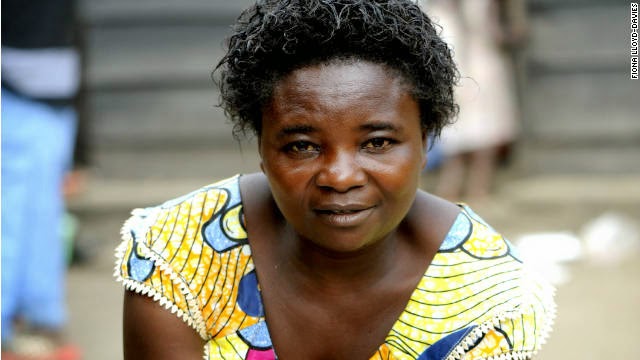On March 27th, I had the
pleasure of listening to Human Rights activist John Prendergast. The issue that he spoke about regarded the
minerals that are being used in our phones and where they come from. Of course, like many others out there, I
don’t think about these things when purchasing a phone. I just bought the IPhone 5s a couple months
ago and all I was concerned with was if they had the gold edition in
stock. John Prendergast really shed light
on his knowledge on the conflict minerals, which are contributing to a deadly
war in Eastern Congo. What really stood
out to me during the conference was the mass rape going on in the Congo of
women, men and even children. United
Nations representative named Eastern Congo as “rape capital of the world”.
Quick Facts
Quick Facts
- According to the UN, 160 women are raped per week in North and South Kivu, mainly by armed men.
- According to the U.S. State Dept., approximately 1,100 rapes are reported each month, with an average of 36
women and children raped every day. - In some areas of eastern Congo, 2 out of 3 women have been victims of some form of sexual violence.
- 16% of residents of North and South Kivu have witnessed some form of sexual violence.
I was naturally inclined to locate
more information on this. Rape is used
as a “weapon of war to punish the women or the community to which they
belong”. Sexual violence in the Congo
ranges from kidnapping, sexual slavery, forced prostitution, and even genital
mutilation. During these horrific “gang
rapes” by militiamen, women are genitally mutilated with guns and even
sticks. As a result, rape survivors face
many damages to their overall health.
Women face damages to their reproductive systems as well as higher
chances of being infected with Aids or HIV.
Yet the most challenging is the lifelong mental damage they must face on
a daily basis. In Eastern Congo, women’s
virginity is highly sacred. A woman who
is raped, even if they are married, are shunned by their community and even by
their own families. It really strikes me
as to how alone and isolated these woman must feel. After experiencing such traumatic events, families
and loved ones should be there supporting these women and helping them overcome
their traumas. Unfortunately, these
women are left to deal with their issues alone.
 |
| Masika Katsuva |
I stumbled upon an article written
by award winning filmmaker Fiona Lloyd.
She visited Congo for a week and recalled stories of torture and rape
that the women in Congo shared with her.
Fiona spoke about a woman in particular who provided shelter and support
to other women who needed it. Her name
is Masika Katsuva. Masika herself is a
rape victim. Her husband was murdered
right before her eyes. Masika and her
young daughters were also raped and impregnated by militiamen. Masika’s family rejected her and her
daughters following the rape. Her
horrific experienced has led her to become a sort of mother figure to over 6000
victims of rape. She provides these
women with care, both medically and psychologically.
It is easy to continue living life
unaware of the things that are occurring in many different parts of the
world. I am so grateful of having
attended John Pendergast’s conference.
It has really allowed me to become more aware and has opened my
eyes. As John P stats, “we can play a
major role.” We can tell these large
consumer companies that we will not support or allow these crimes to go
on. Awareness is the first step and I
myself can say that I will not contribute to this deadly war.





